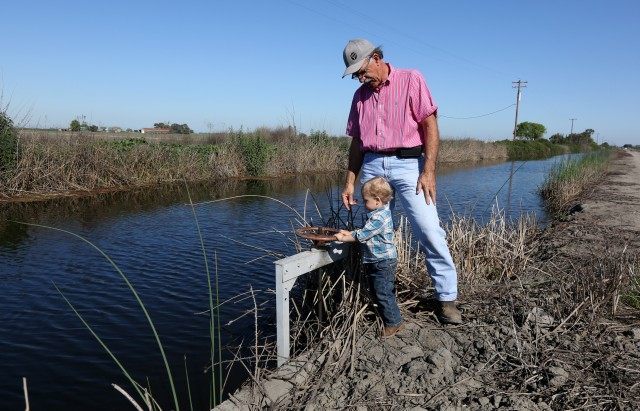Two California Republican lawmakers have proposed a ballot measure that would divert bond revenue from a pricey high-speed rail project to pay for more water storage in the drought-parched state.
State Sen. Bob Huff (R-San Dimas) and Board of Equalization Vice Chair George Runner submitted the language of the proposed ballot measure for summary and title on Thursday, according to a press release.
The measure would direct billions of dollars earmarked under the High-Speed Rail Proposition 1A and the Proposition 1 water bond to financing construction of new surface water and groundwater storage projects. It would also add a new section to Article X of the state constitution establishing drinking water and irrigation as the primary beneficial water use priorities for California residents.
“This initiative does not raise taxes, it does not ask for additional revenue or add any more debt,” Runner said in a statement. “It reallocates unused money from past bonds to make better use of the money in our dire drought for the purpose of providing groundwater recharge and treatment facilities and infrastructure to store new water for California families, businesses and food production.”
The measure would ultimately divert approximately $8 billion from the state’s high-speed rail project–including $2.7 billion from last year’s Proposition 1 water bond–toward water storage construction, according to the Associated Press.
The proposal comes as more Californians express concern over inadequacies in the state’s water storage facilities during what has become a crippling four-year-long drought. In February, a Field Poll found that just one in 10 California residents believe existing water storage facilities are adequate to meet the needs of the state, while a combined 85 percent believe the facilities are inadequate or just barely adequate.
At the same time, support for California’s high-speed rail–a high priority for Gov. Jerry Brown’s administration–has slowly eroded as questions about ballooning costs and the state’s purchase of private land for its construction have dogged the project. The project relies on nearly $10 billion of bond revenue that California voters approved in 2008.
Runner told the Associated Press that he expects to secure adequate funding to collect the signatures required to ensure the measure appears on the 2016 ballot.
“To me this is no different than a family trying to decide its own priorities,” he told the AP. “A lot of times in a family you have conflicting priorities, but you have a limited budget.”

COMMENTS
Please let us know if you're having issues with commenting.